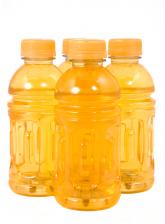What Are Electrolytes?
Do you need more electrolytes? Learn what electrolytes do for you, which foods supply them, and how to be sure you’re getting enough.
Monica Reinagel, MS, LD/N, CNS
Listen
What Are Electrolytes?
We throw the term “electrolyte” around a lot these days and most of us have a vague notion of what it means. But how much do you really know about electrolytes? I’ve gotten several questions on this topic lately so today’s show is a crash course on electrolytes: exactly what they are, what they do for you, how much you need, and where to get them..
What Are Electrolytes?

If you ask a chemistry professor to define “electrolyte,” they might say that an electrolyte is a compound which produces ions when dissolved in a solution such as water. These ions have either a positive or negative electrical charge, which is why we refer to these compounds as electro-lytes. If that all sounds like Greek to you, my colleague Lee Falin, host of the Ask Science podcast, has a couple of great episodes that explain more about ions in terms that everyone can understand!
See also: Atomic Bonds: The Ties that Bind and Basics of pH
In the world of nutrition, we use the word “electrolyte” more specifically to refer to minerals dissolved in the body’s fluids, creating electrically charged ions. The electrolytes that are the most important in nutrition are sodium, potassium, calcium, magnesium, and phosphate.
What Do Electrolytes Do?
Sodium and potassium work together to maintain the correct balance of fluids inside and outside of your cells, ensuring that your cells neither shrivel up like raisins nor explode like over-filled water balloons. Calcium and magnesium, of course, are important for building strong bones. But in this discussion, we’re talking specifically about the electrically charged versions of these minerals, which do things like stimulate contractions in the heart and other muscles. Electrolytes also help maintain proper pH, keeping your blood from becoming too acidic or too alkaline.
See also: Do pH-balancing Diets Work?
What Amount of Electrolytes Do You Need?
For those who sweat a lot, replacing lost electrolytes is just as important as replacing lost fluids.
We get electrolytes from foods, and a healthy, balanced diet generally provides more than enough electrolytes to power you through a normal day’s activities. However, when fluids (such as perspiration) leave our body, they take a bunch of electrolytes with them, and these need to be replaced. The amount of electrolyes that you need depends a lot on how much fluid you use. If you sweat a lot, either because you do a lot of exercise or because you live or work in a very hot environment, you will need more electrolytes than someone who works a desk job in an air-conditioned office.
How Much Do You Lose In Sweat?
How much sweat you produce depends on your level of fitness (people who are fitter sweat sooner and more profusely than people who are out of shape), your body’s fluid levels, the ambient temperature and humidity, and just plain individual variation. You can lose anywhere from half a liter to 4 liters of fluid per hour through perspiration. And for those who sweat a lot, replacing lost electrolytes is just as important as replacing lost fluids.
See also: How to Calculate Your Sweat Rate
The mineral content of sweat also varies a lot from person to person, making it tricky to calculate how much you might need to replace. Typically, however, in every liter of sweat, you can expect to lose around 900mg of sodium, 200mg of potassium, 15mg of calcium and 13mg of magnesium. Notice that sodium is by far the primary electrolyte in sweat. It’s also the one that is most critical to replace.
When exercising for long periods of time or in very hot conditions, sodium losses through sweat can be profound. If your blood sodium dips too low, a condition known as hyponatremia, you can experience dizziness, vomiting, loss of consciousness, progressing to seizures, coma, and death. Drinking large amounts of water can make the problem even worse by further diluting the electrolyte content of the blood. Every year, a handful of marathon runners and long-distance hikers collapse due to hyponatremia. Tragically, some have died because medical professionals mistook the symptoms for dehydration and administered IV fluids…which made the condition worse. Fortunately, a growing awareness of hyponatremia has reduced sports-related hyponatremia fatalities.
I don’t want to scare you unnecessarily: Short exercise bouts are unlikely to be a problem. The conditions you want to be careful of are extended exertion (3 plus hours) and extremely hot temperatures, which increase sweat output. While it’s important to stay hydrated in these conditions, you also need to be careful to replace the sodium you are losing. Even electrolyte drinks such as Gatorade may not be enough to maintain sodium balance during extended exercise in hot weather.
A liter of Gatorade provides less than 500mg of sodium, only half of the amount in sweat. Coconut water, by the way, which a lot of people claim is a good source of electrolytes, is actually quite low in sodium. When you’re really sweating long and hard, salty foods or salt pills, in addition to fluids, are your best bet. A small bag of pretzels, for example, contains roughly the same amount of sodium and other electrolytes as you’d lose in 1 liter of sweat. If you’re losing a couple liters of sweat an hour, you’d want to take in some form of replacement electrolytes at least once per hour.
More Information
Hyponatremia (Mayo Clinic)
Fluid Replacement Guidelines for Athletes (American College of Sports Medicine)
Salt and the Endurance Athlete (Rice University)
References: Montain SJ, Cheuvront SN, Lukaski HC. Sweat mineral-element responses during 7 h of exercise-heat stress. Int J Sport Nutr Exerc Metab. 2007 Dec;17(6):574-82. View abstract.

